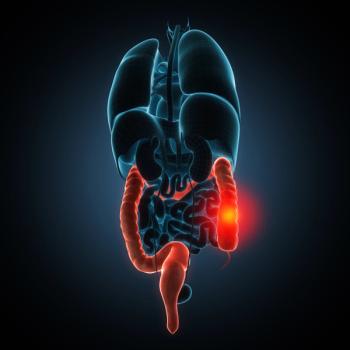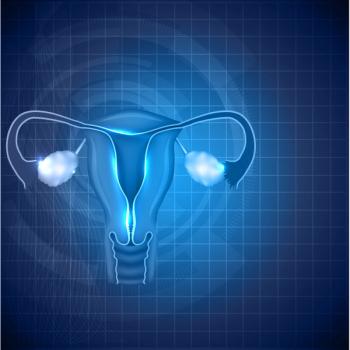
The prespecified number of events required to undergo analyses of the secondary end points, including PFS, OS, and DOR, have not been met.

Your AI-Trained Oncology Knowledge Connection!


The prespecified number of events required to undergo analyses of the secondary end points, including PFS, OS, and DOR, have not been met.

All patients identified as low risk for sentinel lymph node positivity with the DecisionDx-Melanoma test had recurrence-free status after 3 years.

Ongoing research suggests environmental exposures and the role of microbiomes may influence bladder cancer development and response to treatment.

Adding HIPEC to CRS did not show any added benefit but has shown increased toxicities in patients with colorectal peritoneal metastasis.

Multidisciplinary care is important for all cancer care, specifically bone marrow transplant, stated Nina Wagner-Johnston, MD.

Most patients with cancer who took part in a telehealth group expressed that they liked the members of their group and felt less social isolation.

A futility analysis showed that ociperlimab was unlikely to reach the primary end point of overall survival as part of the phase 3 AdvanTIG-302 trial.

Providing easier access to ancillary services for patients with PDAC who live farther away from the treatment center may help them complete the treatment regimen.

Future research will aim to assess the efficacy of PIPAC-MMC plus systemic therapy vs systemic therapy alone in patients with peritoneal tumors.

Data from the phase 3 CheckMate 77T trial support the CHMP’s opinion on approving the perioperative nivolumab regimen for those with resectable NSCLC.

“Recognizing that we could follow immunotherapy with a bone marrow transplant safely was quite important,” Nina Wagner-Johnston, MD, stated.

Although small incision surgery may serve as a conduit to deliver PIPAC-MMC, it may confer benefits in the staging and treatment of peritoneal tumors.

The REMASTer trial found that laser interstitial thermal therapy was equivalent to open craniotomy regarding OS and PFS data in progressive metastatic brain tumors.

Muhammad Talwa Waheed, MD, found that resection after appendectomy should be prioritized in the treatment of patients with appendiceal cancer.

The phase 3 ROSELLA trial results assessing relacorilant/nab-paclitaxel in patients with platinum-resistant ovarian cancer will support an upcoming NDA.

Data from the phase 3 CheckMate-67T trial support the CHMP’s recommendation for approving subcutaneous nivolumab across various solid tumor indications.

Patients with peritoneal metastases were historically associated with limited survival and low consideration for clinical trials.

Tislelizumab plus chemotherapy demonstrated superior OS, PFS, ORR, and DOR results compared with placebo plus chemotherapy in first-line ES-SCLC.

An expert panel at ELCC 2025 reviews the MARIPOSA trial's implications for first-line therapy in EGFR-mutated NSCLC and broader advancements.

A recent Oncology Decoded podcast focuses on adjuvant therapy like pembrolizumab and optimal post-surgical care for patients with kidney cancer.

Cytokine release syndrome events primarily occurred during step-up and the first full dosing cycle in patients with relapsed/refractory multiple myeloma.

No dose-limiting toxicities were seen with solnerstotug in patients with PD-L1–resistant tumors, and most adverse effects were grades 1/2 in severity.

Greater cancer treatment longevity enables oncologists the ability to form more impactful relationships with their patients.

A recent Oncology Decoded podcast focuses on adjuvant therapy like pembrolizumab and optimal post-surgical care for patients with kidney cancer.

Muhammad Talha Waheed, MD, stated that a retrospective study found an OS benefit in CRC peritoneal metastasis with cytoreduction surgery without HIPEC vs with HIPEC.

Laparoscopic, histologic, and biomarker responses occurred at all dose levels of mitomycin treatment in patients with peritoneal metastases.

A phase 2 trial presented at SSO met its primary end point by achieving negative margins in 79% of patients with node-negative rectal cancer.

Results from the phase 3 ECHO trial showed PFS and OS improvements with acalabrutinib in the first-line treatment of MCL compared with standard of care.

Sirexatamab plus bevacizumab/chemotherapy significantly improved overall response rate in patients with high DKK1 levels in the phase 2 DeFianCe study.

The “inescapability” of climate hazards may necessitate prioritization of research to improve outcomes among vulnerable populations who require treatment.